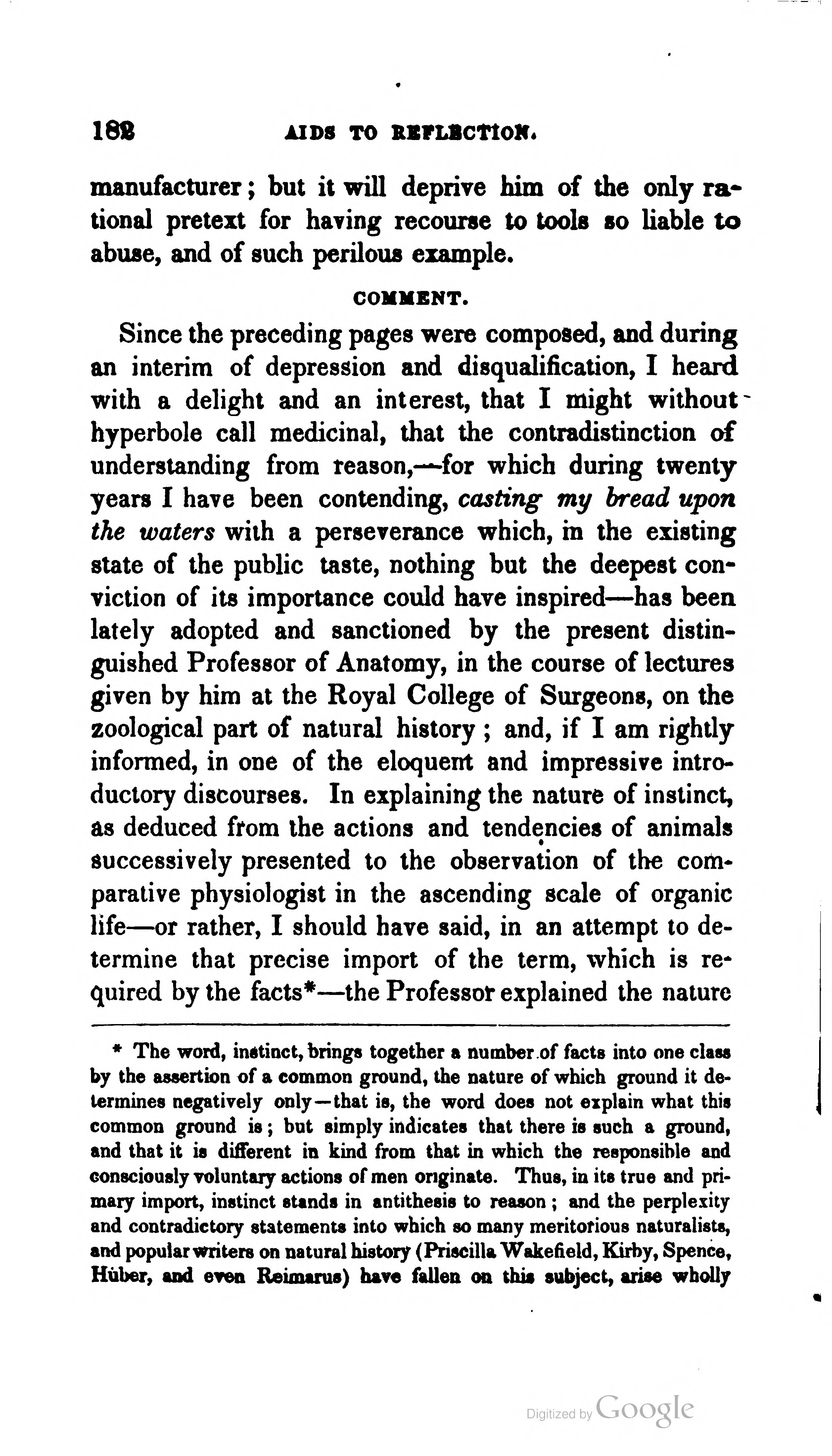Contents
| « Prev | COMMENT. | Next » |
COMMENT.
Since the preceding pages were composed, and during an interim of depression and disqualification, I heard with a delight and an interest, that I might without hyperbole call medicinal, that the contradistinction of understanding from reason,--for which during twenty years I have been contending, casting my bread upon the waters with a perseverance which, in the existing slate of the public taste, nothing but the deepest conviction of its importance could have inspired--has been lately adopted and sanctioned by the present distinguished Professor of Anatomy, in the course of lectures given by him at the Royal College of Surgeons, on the zoological part of natural history; and, if I am rightly informed, in one of the eloquent and impressive introductory discourses. In explaining the nature of instinct, as deduced from the actions and tendencies of animals successively presented to the observation of the comparative physiologist in the ascending scale of organic life--or rather, I should have said, in an attempt to determine that precise import of the term, which is required by the facts*--the Professor explained the nature
*The word, instinct, brings together a number of facts into one class by the assertion of a common ground, the nature of which ground it determines negatively only--that is, the word does not explain what this common ground is; but simply indicates that there is such a ground, and that it is different in kind from that in which the responsible and consciously voluntary actions of men originate. Thus, in its true and primary import, instinct stands in antithesis to reason; and the perplexity and contradictory statements into which so many meritorious naturalists, and popular writers on natural history (Priscilla Wakefield, Kirby, Spence, Huber, and even Reimarus) have fallen on this subject, arise wholly 183 of what I have elsewhere called the adaptive power, that is, the faculty of adapting means to proximate ends. [N. B. I mean here a relative end--that which relatively to one thing is an end, though relatively to some other it is in itself a mean. It is to be regretted that we have no single word to express those ends, that are not the end: for the distinction between those and an end in the proper sense of the term is an important one.] The Professor, I say, not only explained, first, the nature of the adaptive power in genere, and, secondly, the distinct character of the same power as it exists specifically and exclusively in the human being, and acquires the name of understanding; but he did it in a way which gave the whole sum and substance of my convictions, of all I had so long wished, and so often, but with such imperfect success, attempted to convey, free from all semblance of paradoxy, and from all occasion of offence--omnem offendiculi * ansam praecidens. It is,
from their taking the word in opposition to understanding. I notice this, because I would not lose any opportunity of impressing on the mind of my youthful readers the important truth that language (as the embodied and articulated spirit of the race, as the growth and emanation of a people, and not the work of any individual wit or will) is often inadequate, sometimes deficient, but never false or delusive. We have only to master the true origin and original import of any native and abiding word, to find in it, if not the solution of the facts expressed by it, yet a fingermark pointing to the road on which this solution is to be sought.*


| « Prev | COMMENT. | Next » |